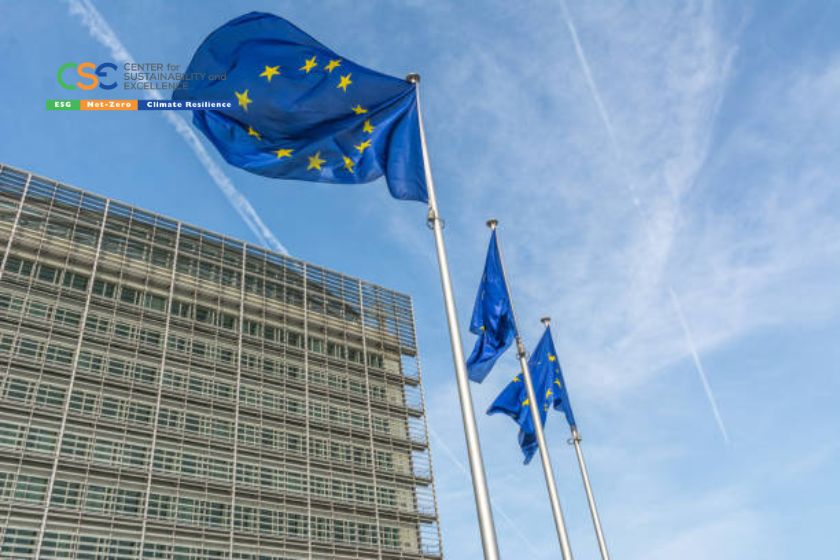The European Union’s Corporate Sustainability Due Diligence Directive (CS3D), finally approved on April 24 by the EU Parliament, marks a pivotal advancement in integrating environmental and human rights considerations into corporate governance.

As part of the EU’s broader commitment to sustainable practices, the directive imposes rigorous due diligence obligations on companies operating within its jurisdiction. This legislative move, which concluded its parliamentary phase, will soon be ratified by the EU Council of Ministers, a step viewed largely as procedural.
Once adopted into national laws across the member states, the CS3D will compel certain companies—both within the EU and international firms doing substantial business in the region—to actively identify, mitigate, and report on the potential and actual adverse impacts of their operations on human rights and the environment.
This involves integrating robust due diligence frameworks into their internal policies, conducting regular assessments, and maintaining transparent communication about their efforts and outcomes. Companies failing to comply will face civil liabilities and potentially hefty damages claims.
The directive categorizes companies based on size and turnover, with phased compliance deadlines extending from 2027 through 2029. It also specifies exceptions, such as for non-operational holding companies, and adjusts the scope of obligations for financial institutions, which were initially subjected to more extensive requirements.
Key elements of the CS3D include:
- Risk Management: Companies must embed due diligence into their governance structures, developing policies that encapsulate long-term due diligence strategies and a code of conduct applicable across all business operations.
- Impact Identification and Mitigation: Entities are required to proactively identify risks and take preventive or corrective action, adjusting business relationships where necessary to align with their ethical obligations.
- Transparency and Reporting: There is a mandate for detailed public reporting on due diligence processes, adverse impacts, and remedial actions taken, which will not apply to companies already subject to the Corporate Sustainability Reporting Directive (CSRD).
In addition to these requirements, the directive insists on developing a climate transition plan that aligns business strategies with global efforts to limit warming to 1.5 °C, adhering to the Paris Agreement.
The CS3D is anticipated to influence approximately 5,300 companies significantly, heightening both litigation risks and administrative burdens but also paving the way for a more responsible and sustainable global business ethos.
Which companies will the new EU rules apply to?
Large EU limited liability companies:
- Group 1: +/- 9,400 companies – 500+ employees and net EUR 150 million+ turnover worldwide.
- Group 2: +/- 3,400 companies in high-impact sectors. – 250+ employees and net EUR 40+ million turnover worldwide, and operating in defined high impact sectors, e.g. textiles, agriculture, extraction of minerals. For this group, the rules start to apply two years later than for group 1.
Non–EU companies: +/- 2,600 companies in Group 1 and +/- 1,400 in Group 2
Third country companies active in the EU with turnover threshold aligned with Group 1 and 2, generated in the EU.
SMEs
Micro companies and SMEs are not concerned by the proposed rules. However, the proposal provides supporting measures for SMEs, which could be indirectly affected.
This directive not only complements other EU regulations but also sets a new benchmark for corporate accountability in the realms of environmental and social governance.
As companies brace for these changes, they must enhance their internal processes and engage in comprehensive training for their sustainability teams to navigate this new regulatory landscape effectively.
TRAINING IS KEY:
CSE is well-positioned to guide Sustainability Practitioners on the most challenging ESG issues and help educate supply chain partners.
If you need to train your sustainability team and make Sustainability ESG strategy an integrated parcel of corporate success join our global Certified Sustainability ESG Practitioner Programs this June, bringing together the most knowledgeable executives with the most admirable drive for excellence! For early bird and group (up to 4 people) discounts reach us at [email protected] or [email protected]
Earn the chance to inform the discussion, bring your unique challenges and learn the case-study based methodology to enhance your sustainability journey.
For in-house training opportunities contact [email protected]
Stay tuned for the latest news and challenges and subscribe to our newsletter.






